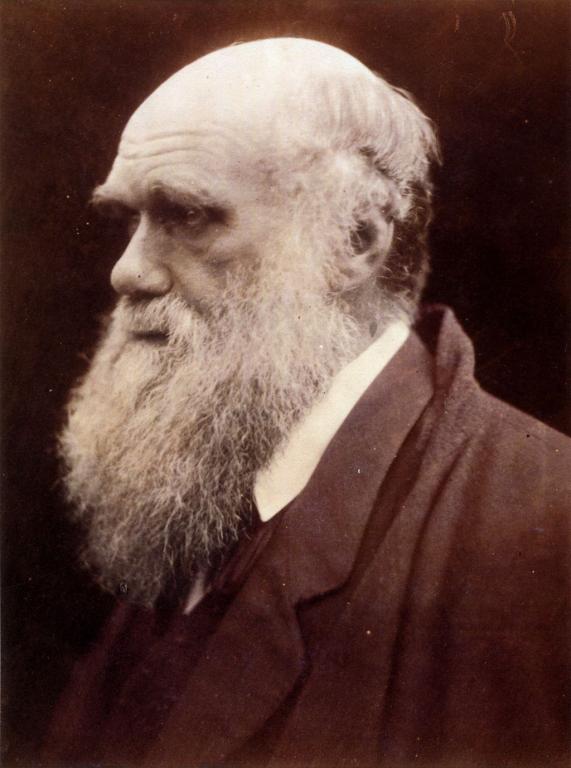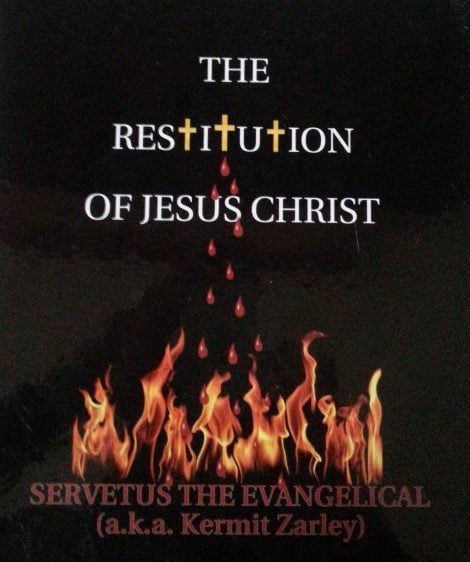 I was just reading the last chapter of Charles Darwin’s book, On the Origin of Species. Published in 1859, it is regarded as the foundation of evolutionary biology. He teaches in it that natural selection is the cause of the development of the species. This book became a focus of many public debates between religion and science in the English-speaking world during the latter half of the nineteenth century and the early twentieth century. It is one of the most important books published in modernity since it has had such a profound effect on the comparison of science and religion.
I was just reading the last chapter of Charles Darwin’s book, On the Origin of Species. Published in 1859, it is regarded as the foundation of evolutionary biology. He teaches in it that natural selection is the cause of the development of the species. This book became a focus of many public debates between religion and science in the English-speaking world during the latter half of the nineteenth century and the early twentieth century. It is one of the most important books published in modernity since it has had such a profound effect on the comparison of science and religion.
It has been thought that Charles Darwin (1809-1882) was an atheist. Actually, he began with a strong Unitarian background, though he attended Anglican schools. He received a BA (bachelor of arts degree) at Cambridge University which included studying Anglican theology. In those college years, Charles Darwin was very involved in theological issues. He later admitted that the book which most affected him was William Paleys’ Natural Theology. Paley also wrote, which Darwin read, Evidences of Christianity. But Charles Lyell’s book on geology, Uniformitarianism, affected Darwin’s work the most. This and Darwins’ Origin of Species supported each other.
Charles Darwin had intended to be an Anglican clergyman. His mother and wife Emma were devout Unitarians. Emma seems to have had a genuine love for Jesus. One of her favorite Bible texts was John 13-17. During their courtship, she asked Charles to read this text and discuss with her. She worried that she and Charles were far apart about some religious matters, and she expressed this in a letter. Emma was also a Bible student. She and Charles had much discussion about theology for many years.
Charles Darwin wrote about “God,” but not much. In his early years, he identified himself as a “theist.” Many years later he said, “my belief in what is called a personal God was . . . firm.” That was contrary to many famous Deists previous to him, who were also interested in natural science. They believed that an impersonal God created the universe but that he left it on its own, called “the clockwork universe.” For a long time, Darwin believed God acted upon the universe through his natural laws.
Darwin’s background was very anti-Trinitarian. The wikipedia article, “Religious views of Charles Darwin,” says of Charles’ wife Emma, “In Downe [London suburb] Emma attended the Anglican village church, but as a Unitarian had the family turn round in silence when the Trinitarian Nicene Creed was recited.” She did that on other occasions.
 Unitarians were known mostly for two beliefs: (1) advocating religious tolerance, which was most important to them, and (2) rejecting the institutional church doctrine of the Trinity. Regular readers of my blog know that I was a Trinitarian for twenty-two years, then entered into a deep study of the subject, almost entirely as it regards the Bible, and wrote a 600-page book about it entitled The Restitution of Jesus Christ (2008). In this book I cite over 400 scholars to show that the Bible does not teach that God is a trinity of persons or that Jesus is God. Yet I affirm in it every other major teaching about the identity and work of Jesus that the institutional church has taught. I don’t identify as a Unitarian because I think that could create some confusion about me. I merely refer to myself as “a one-God Christian.”
Unitarians were known mostly for two beliefs: (1) advocating religious tolerance, which was most important to them, and (2) rejecting the institutional church doctrine of the Trinity. Regular readers of my blog know that I was a Trinitarian for twenty-two years, then entered into a deep study of the subject, almost entirely as it regards the Bible, and wrote a 600-page book about it entitled The Restitution of Jesus Christ (2008). In this book I cite over 400 scholars to show that the Bible does not teach that God is a trinity of persons or that Jesus is God. Yet I affirm in it every other major teaching about the identity and work of Jesus that the institutional church has taught. I don’t identify as a Unitarian because I think that could create some confusion about me. I merely refer to myself as “a one-God Christian.”
But Darwin had become intensely interested in natural history and natural theology. The latter was quite popular among some scientists of that time and before. This means there is a divine design in nature that reveals there is a God who established natural laws. Thus, Darwin believed God was a “lawgiver.” But due to his studies of nature, which reveals so much pain and suffering, Charles Darwin struggled with some religious concepts, especially those involving theodicy. He later began to wrestle with the concept of the existence of God.
Charles Darwin says he began to have serious doubts about the Bible and the existence of God in the late 1830s, which would have been in his early twenties. Some of it was caused by ridicule from classmates and colleagues when he quoted the Bible as an authority on moral issues. But he also began to distrust some of the history recorded in the Old Testament, such as the building of the Tower of Babel in the book of Genesis. (I’m writing a book that involves this record in Genesis 6-11.)
In the first ten years of their marriage, Charles accompanied his wife Emma and family to their local Anglican church (Church of England). In about 1849, Charles stopped attending church while his family continued. He developed a pattern of escorting his family to church on Sundays and then going out for a walk.
Emma–obviously an intelligent woman judging from her letters–believed passionately in an afterlife. In 1879, twenty years after the publication of Charles Darwin’s famous book, he admitted to being an agnostic. He explained, “Science has nothing to do with Christ, . . . I do not believe that there ever has been any [divine] revelation. As for a future life, every man must judge for himself between conflicting vague probabilities.”
By this time, Charles Darwin claimed that he had never attacked religion in either his writings or his public speeches. He admitted that this probably was due largely to the emotional pain it would have caused his family. In The Autobiography of Charles Darwin, published posthumously, his wife Emma and their son Francis excised quotes by Charles about Christianity because they deemed them detrimental to his reputation.
In 1958, Charles Darwin’s granddaughter Nora Barlow published a revised version of this book which included the following deleted quotes:
“The [New Testament] Gospels cannot be proved to have been written simultaneously with the events, – that they differ in many important details, far too important as it seemed to me to be admitted as the usual inaccuracies of eyewitness; – by such reflections as these, which I give not as having the least novelty or value, but as they influenced me, I gradually came to disbelieve in Christianity as a divine revelation” (p. 86).
“I can indeed hardly see how anyone ought to wish Christianity to be true; for if so the plain language of the text seems to show that the men who do not believe, and this would include my Father, Brother and almost all my best friends, will be everlastingly punished. And this is a damnable doctrine” (p. 87).
“At the present day (ca. 1872) the most usual argument for the existence of an intelligent God is drawn from the deep inward conviction and feelings which are experienced by most persons. . . . This argument would be a valid one if all men of all races had the same inward conviction of the existence of one God: but we know that this is very far from being the case. Therefore I cannot see that such inward convictions and feelings are of any weight as evidence of what really exists” (p. 91).
Charles Darwin remains one the most towering figures of the modern western world. But he was never knighted to become Sir Charles in his native land because he originally embraced Christian Faith and then fell away to become an agnostic the remainder of his life. Yet his wife held steadfastly to her Christian convictions.
The marriage of Charles and Emma Darwin seems like a microcosm of something Jesus predicted in his Olivet Discourse. He said, “many will fall away” from the faith; “but the one who endures to the end will be saved. And this good news of the kingdom will be proclaimed throughout the world, as a testimony to all the nations; and then the end will come” (Matthew 24.10, 13 NRSV).
What is “the end”?–Jesus comin’ back! Are you ready, like Emma was? Or has Charles Darwin and others convinced you otherwise?












